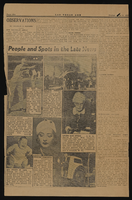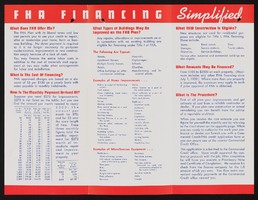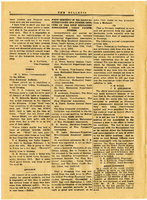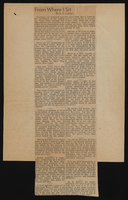Search the Special Collections and Archives Portal
Search Results
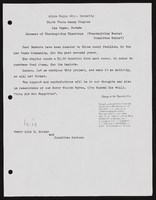
Alpha Kappa Alpha Sorority, Theta Theta Omega Chapter Thanksgiving basket committee reports
Date
Archival Collection
Description
From the Alpha Kappa Alpha Sorority, Incorporated, Theta Theta Omega Chapter Records (MS-01014) -- Chapter records file.
Text
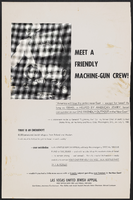
Las Vegas United Jewish Appeal "Meet A Friendly Machine-Gun Crew!" poster, 1953-1959
Date
Archival Collection
Description
Meet A Friendly Machine-Gun Crew! poster from the Las Vegas United Jewish Appeal asking for contributions to aid Jewish refugees. The text across the the front reads: "MEET A FRIENDLY MACHINE-GUN CREW! "America will lose the entire near East -- except for Israel! As long as ISRAEL is HELPED BY AMERICAN JEWRY, Israel can survive as our ONE FRIENDLY OUTPOST in the Near East!" - a statement made by General "Lightening Joe" Collins, former Chief of Staff, United States Army, at the Army and Navy Club, Washington, D.C., on July 1. 1958. TODAY IS AN EMERGENCY!! 80,000 persecuted Jewish refugees from Poland and Moslem lands must be helped to get to Israel - and quickly! Your contribution to the UNITED JEWISH APPEAL will help the emergency SPECIAL RESCUE FUND of $100,000,000 - and will help build up the newborn state of Israel - to remain strong - well-armed -- fiercely proud of its freedom - ready and able to remain YOUR ONE FRIENDLY OUTPOST IN A HOSTILE PART OF THE WORLD! -wouldn't you feel a little more secure with a friendly outpost guarding your freedom in the Near East? Las Vegas United Jewish Appeal Post Office Box 1981 Las Vegas, Nevada. Carl Cohen, chairman/Co-chairmen: Moe Dalitz and Jacob Kozloff/Nevada State Chairman: Edward Levinson"
Mixed Content

Transcript of interview with Charles Nur Fernald by Claytee D. White, May 31, 2014
Date
Archival Collection
Description
Text

Transcript of interview with Vincent "Vince" Hart by Andrew Bannister, February 21, 1980
Date
Archival Collection
Description
On February 21, 1980, Andrew Bannister interviewed Vincent “Vince” Hart (born on July 7, 1945 in Jerusalem, Palestine) in Hart’s office about his experience with youth soccer, both as a coach and as a player. Hart discusses his family background and his residential history in the United Kingdom and the United States before explaining the development of the men’s soccer team at the University of Nevada, Las Vegas. He describes his impact on the program and his hopes for future student athletes. The two then delve into a discussion of the fundamentals of soccer and different strategies that are commonly used. They then conclude with a brief description of Vince’s experiences with meeting a variety of professional soccer players at the Las Vegas Stadium.
Text
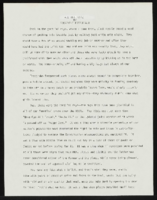
"All That Chaz": article draft by Roosevelt Fitzgerald
Date
Archival Collection
Description
From the Roosevelt Fitzgerald Professional Papers (MS-01082) -- Drafts for the Las Vegas Sentinel Voice file. On the 1980 Las Vegas Chaz Nightclub not allowing Black individuals.
Text
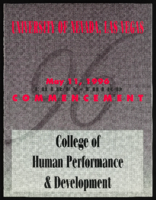
University of Nevada, Las Vegas (UNLV) College of Human Performance and Development 33rd commencement program
Date
Archival Collection
Description
Commencement program from University of Nevada, Las Vegas Commencement Programs and Graduation Lists (UA-00115).
Text

